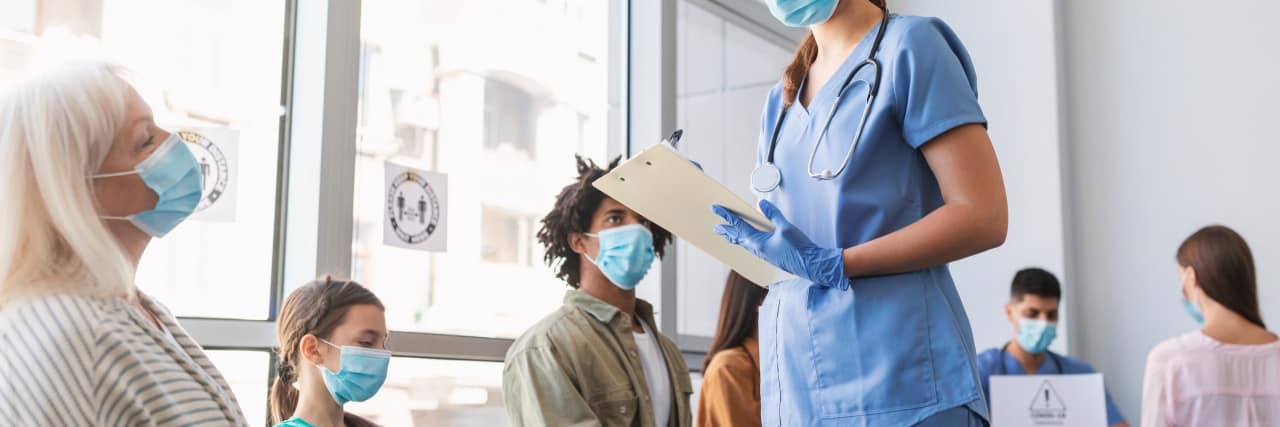How the Collapse of Primary Care Is Impacting the Entire Health Care System
I am writing this post from my bed. I’ve spent a lot of time horizontal during the eight years since my lupus diagnosis, but today’s prostration is the result of a week of failed attempts to obtain medical care. After exhausting all of my options, and sailing close to sepsis, I ended up in the emergency room yesterday, only to encounter more obstacles to competent and compassionate care.
You might assume that my education, socioeconomic status, and location in a major city would make access to care a foregone conclusion. With the proliferation of telemedicine platforms and virtual care options spawned by the COVID pandemic, shouldn’t we all be able to find adequate and timely care? If those of us with “good” health insurance cannot find help when we need it, what barriers to care must the uninsured, undocumented, and underinsured poor be facing?
My experience as a uber-consumer of healthcare over the past eight years has been that health care access and health care quality are worsening rapidly, despite the expansion of digital platforms and virtual options. Telemedicine was my career pivot after I was diagnosed with SLE and Sjögren’s syndrome in 2014. I figured if I could no longer see patients in real life, due to my compromised immune system, severe fatigue, and pain, I could certainly see them virtually.
But you cannot virtually evaluate an ear infection, breast mass, heart failure, or an infected diabetic foot. And on stand-alone telemedicine platforms with no access to medical records, it is my assertion that you cannot ethically and adequately care for any patient, regardless of malady. Most often the practice of medicine is a full contact sport, all 5 senses are required and a 6th sense is especially helpful. This is not to say that telemedicine isn’t transformative. It has a rightful place in the context of an ongoing clinical or therapeutic relationship, for chronic disease care, dermatology, psychiatry, and other less handsy forms of medical practice.
The healthcare imbroglio that inspired this post started a week ago Saturday, with a mild UTI. Since I could not access any of the services my HMO-esque monolithic hospital/insurance provides (the urgent care was closed, the telephone visits were maxed out, and I understandably did not want to go to the ER), I paid out of pocket for an outside online service. The care was excellent and I received an appropriate prescription immediately. Unfortunately, my symptoms relapsed and I spent the rest of the week trying to get an appointment (none available) or an online visit/telephone visit (not allowed because I now had a resistant infection). So, if nobody could see me and nobody would talk to me, what were my choices?
By Friday night I was miserable and getting seriously sick but the urgent care was closed. The ER became my only option. The misuse of emergency room services is a huge factor in escalating health care costs and burnout among ER physicians, but what choice is left when there is nobody else to see you?
That my ER visit ended well after a poor beginning is due only to my willingness and ability to ask for another doctor. I cannot imagine what a non-native speaker or uninsured person would feel entitled to or receive in the same situation. I would hazard a guess that substandard care meted out in an unsympathetic environment would be the most likely scenario.
Doctor #1 came in to see me with his mask riding well below his nose. The first words out of his mouth were that I couldn’t be sick because my labs were relatively normal and my urine “didn’t look too bad.” He didn’t make eye contact, sit down, or open the computer to check my medical history as I gave him an abridged version of my medical history and the evolution of my complaint. He barely examined me and when I expressed pain during the abdominal exam, he reassured me that there was nothing to worry about “because I didn’t have anything down there.” (I am assuming he meant my uterus, which is gone, rather the than bladder, ovaries, colon, and vagina which I can assure you are still firmly in place). He then launched into a cringeworthy bout of mansplaining on the topic of why too many antibiotics are very, very bad for you. When I finally interrupted and told him I was a physician, he panicked, offered me an abdominal and pelvic CT scan, and promptly left the room.
After a very brief internal debate, I asked my nurse if she could please find me another doctor. She promptly spoke to her charge nurse and found me a physician who took a few minutes to listen to me, checked my history and lab results in the chart, examined me, and even did a pelvic exam, despite my lack of “anything down there.” She prescribed a new antibiotic and diflucan, and sent me home before the unneeded CT scan ordered by doctor #1 would have even started. However, all of this could have been done in a primary care office or urgent care (as long as lab testing was available) in the first place if my quest for a visit had been successful.
Obviously, compassion and competence are not gone from medical practice, but they are severely strained and rarely prioritized. We are in the midst of a physician shortage that will only worsen with time, and yet we increasingly prioritize the very things that perpetuate that deficit through burnout: speed, endurance, and hyper-economy. Why would I, as your physician, stop to listen, empathize, or think deeply when there are deep penalties for doing so?
This story originally appeared on Dr. Tracy’s blog.
Getty image by Prostock-Studio.

